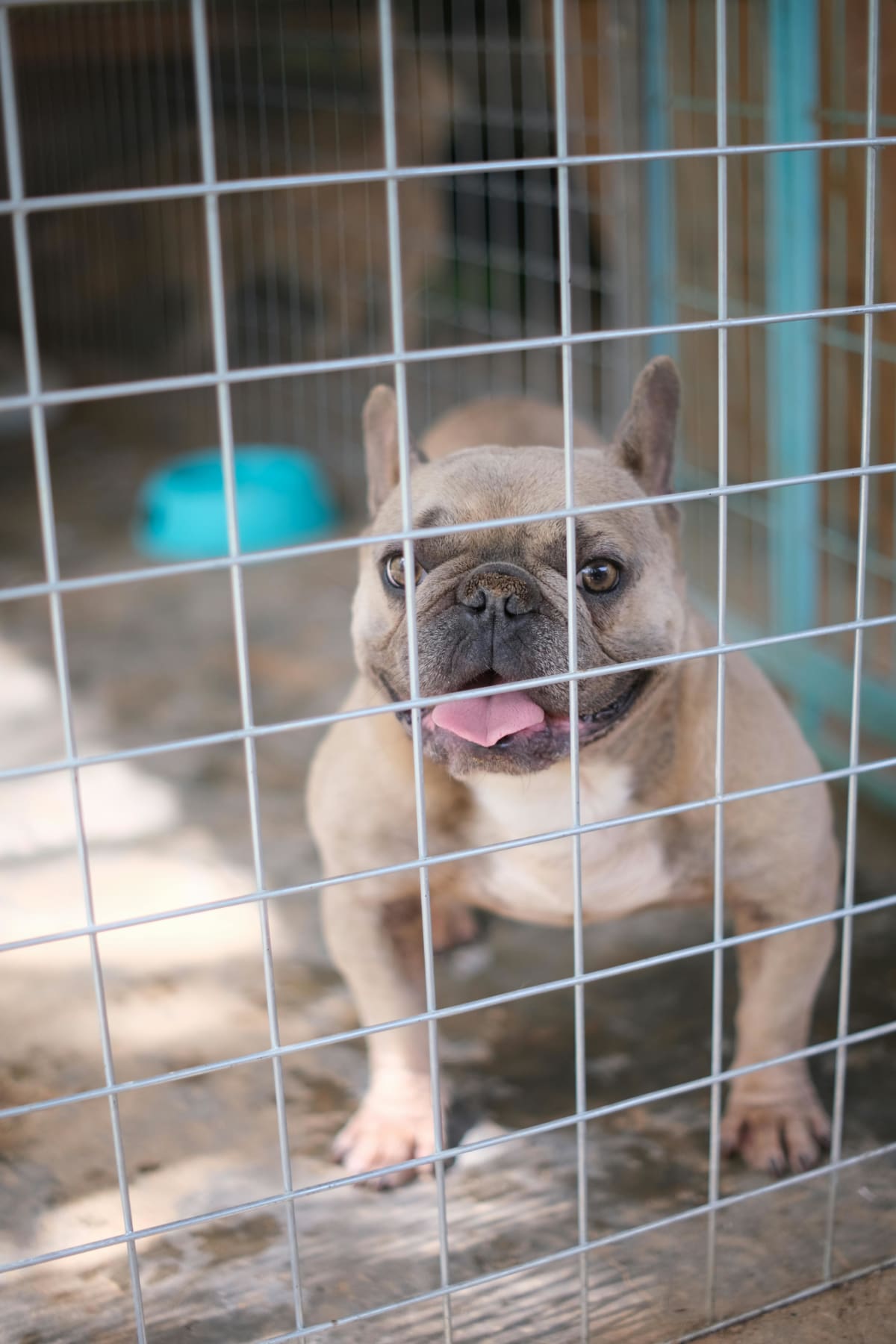Keeping dog kennels clean is important for the continued health, comfort, and happiness of your dogs. Any type of dog shelter should always be clean and safe, no matter how frequently or infrequently your dogs are in this space. Dirty dog kennels can easily spread disease, leading to sick dogs and expensive vet bills. Keep reading to learn how to clean dog kennels.
The Importance of Clean Kennels
Your dog deserves to have a kennel that is clean and comfortable. Additionally, you don’t want to be tracking dog waste throughout your kennel and house. To prevent contagious diseases, parasites, and bacteria from spreading among your dogs, each dog should be assigned its own kennel. If you move dogs around to different kennels, each kennel must always be thoroughly cleaned before a new dog moves in.
Even if a dog is rarely in its kennel, any urine or feces inside a dog’s shelter must be cleaned immediately to prevent bacteria growth. Urine and feces should never remain in a kennel for days. When a soiled kennel is not cleaned, it can spread bacteria and illness throughout your kennel.
How Often Should Kennels Be Cleaned?
You should inspect each kennel daily to make sure all are clean. Any spilled food or water should be cleaned up and the dishes refilled. If any kennels contain feces or urine, they need to be sanitized. Some accidents may just need spot-cleaning while others may need to be deep cleaned. Hard, solid waste can be spot cleaned while liquid or soft waste may require cleaning the entire kennel floor. Items inside kennels, like toys, bedding, and dishes, should be cleaned weekly. All dog kennels should be deep cleaned at least once a month, regardless if the kennel looks dirty or not.
Deep Cleaning Kennels
Empty the Kennel

The first step in cleaning a dog kennel is relocating the dog to a safe spot away from the kennel. Once the dog is safely moved elsewhere, begin taking out any items in the kennel like dishes, toys, and bedding. These items need to be removed and washed separately so all corners and floor space in the kennel can be cleaned properly. Likewise, check if any bedding inside the kennel is soiled or dirty. If a dog is sick and its bedding has been heavily soiled, it’s best to throw it away and get fresh bedding. Lastly, use a scoop to remove any solid trash, such as feces or spilled dog food.
Rinse & Scrub
Next, rinse down the kennel with a hose. Apply your selected disinfectant on the floor and walls. Make sure you follow the product’s cleaning instructions as some cleaners need to be diluted or will need time to sit and disinfect. After disinfectant has been applied and any instructed time has passed, begin scrubbing the kennel walls and floor with a hard-bristled broom or brush.
Final Rinse & Air Dry
Once the kennel has been scrubbed, rinse everything down with a hose again, using hot water if available. Leftover cleaning agents in your dogs’ kennels can make them sick if ingested, so you want to take your time fully rinsing the kennel out. After all the soap has been completely rinsed away, the kennel can be left to air dry. To prevent further bacteria growth, dog enclosures must be fully dry before the dog is let back in. To speed along drying, you can use a squeegee and/or clean towels.
Choosing a Cleaner

There are endless products on the market that can be used to clean and disinfect kennels. While there are many cleaners to choose from, it’s best to avoid those that contain ammonia. The smell of ammonia is similar to the smell of dog urine, which can lead dogs to use their kennels as bathrooms.
As mentioned earlier, always follow the instructions on your cleaning product. Keep in mind that a product’s dilution amount may be different when disinfecting for an illness as opposed to routine cleaning. A popular cleaner and deodorizer that’s used by vets and pet owners across the US is Rescue Disinfectant. This cleaner is known to be safe for animals while combining cleaner, disinfectant, and deodorizer into 1 product.
Personal Safety
When cleaning kennels and dog shelters, remember to keep the space well-ventilated and wear gloves when necessary. In addition to gloves, waterproof boots and shoe coverings are recommended when cleaning. These items prevent bacteria from being spread to your home or other dogs. This is especially essential when illnesses are present.
Have a litter to sell? Looking for a new puppy to bring home? Begin browsing or listing puppies on Lancaster Puppies by creating an account today.
Check out our blog for more dog care tips and training guides.

